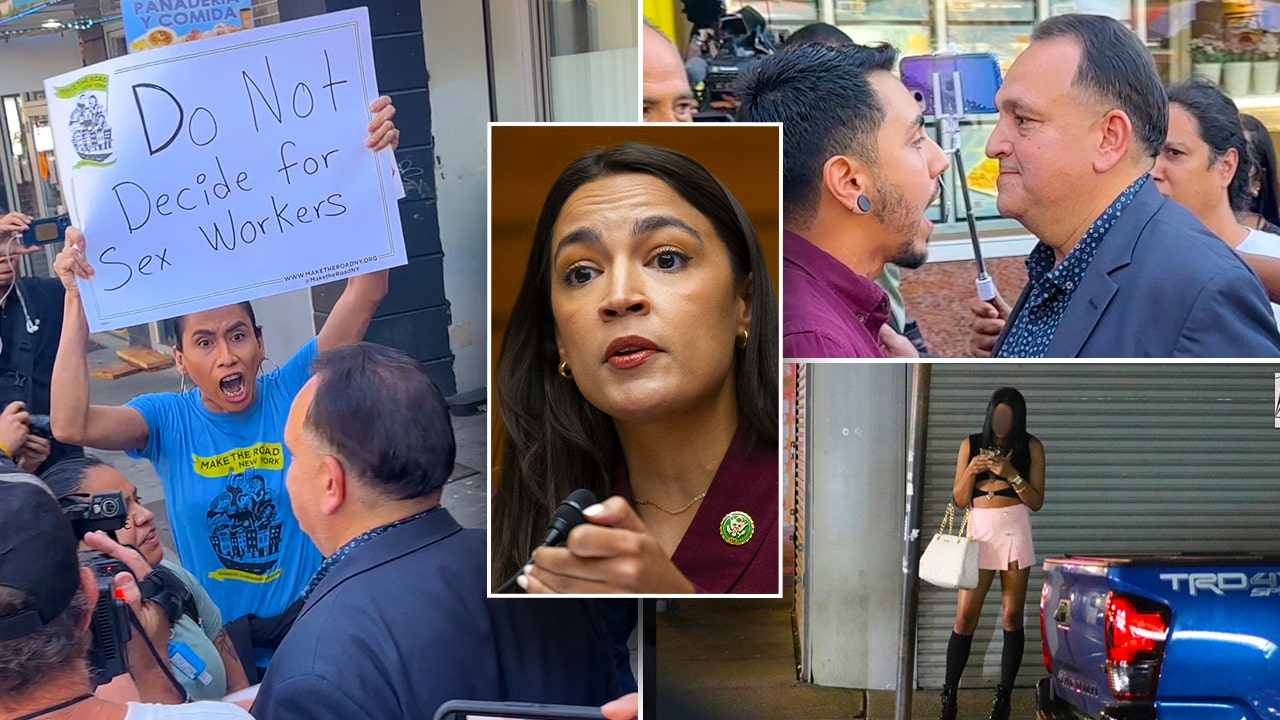Chaos in Queens: The Clash Over Prostitution and Police Crackdowns
In a dramatic scene that unfolded in Queens, New York, tensions flared as local residents and activists confronted a politician over a controversial police crackdown on illegal sex work. The incident centered around Hiram Monserrate, a former New York state senator and current candidate for the state Assembly, who found himself at the center of a heated protest while speaking to the media about the police’s recent actions.
The Setting: A "Red Light" District
The neighborhood in question, known for its vibrant yet troubled atmosphere, has long been characterized as a "Red Light" district. Residents have expressed frustration over the unsanitary conditions and rampant illegal activities, likening the area to a "Third World" country. The local community is grappling with the presence of sex workers and unlicensed vendors, leading to a complex debate about public safety, legality, and community standards.
The Protest: Voices of Dissent
On the day of the protest, Monserrate was giving interviews when he was surrounded by demonstrators advocating for the rights of sex workers and opposing the police’s aggressive tactics. The rally, organized by local activist groups, called for an end to what they described as unnecessary raids and harassment by law enforcement. Chants of "More resources, no more raids" echoed through the plaza as the crowd expressed their discontent with the current state of policing in the area.
Among the protesters was Mateo Guerrero, who vocally challenged Monserrate, insisting that the community needed to accept the presence of sex work and illegal vendors as part of its fabric. The confrontation escalated as Monserrate attempted to distance himself from the crowd, only to be pursued and heckled by demonstrators who felt their voices were being ignored.
The Community’s Perspective
For many in the area, the issue of sex work is intertwined with broader social and economic challenges. Activists argue that many sex workers are migrants facing limited job opportunities and language barriers, forcing them into the streets to survive. They contend that criminalizing their work does not address the underlying issues of poverty and lack of resources.
Biney Garcia, a protester and former sex worker, articulated the sentiment of many in the community, stating, "You are against me, against my community." This reflects a deep-seated frustration with political figures who, they feel, do not understand the realities of their lives.
Law and Order Advocates
In stark contrast, Monserrate and other law and order proponents argue that the police presence is necessary to combat a rising crime wave in the area. They point to the proliferation of brothels and the visibility of sex workers as indicators of a community in distress. Monserrate emphasized the need for police intervention, stating, "Roosevelt Avenue has been under a crime wave, it’s an urban crime zone."
The recent launch of "Operation Restore Roosevelt" by New York City Mayor Eric Adams, which aims to deploy additional police officers to the area, has intensified the debate. Supporters of the operation believe that increased policing is essential for restoring safety and order, while opponents view it as an infringement on the rights of marginalized individuals.
The Broader Implications
The clash in Queens is emblematic of a larger national conversation about the criminalization of sex work and the role of law enforcement in addressing social issues. As communities grapple with the complexities of illegal activities, the debate often centers on the balance between public safety and individual rights.
Activists like Guerrero argue for a shift in focus from policing to providing essential services such as housing, healthcare, and education. They contend that these resources would better serve the community than increased law enforcement presence.
A Divided Community
As the protest concluded, the divide within the community remained palpable. On one side, there are those advocating for the rights of sex workers and the need for more humane approaches to social issues. On the other, there are residents who feel overwhelmed by crime and disorder, calling for stronger law enforcement measures.
The situation in Queens highlights the ongoing struggle between differing visions for the future of urban neighborhoods. As the community continues to navigate these challenges, the voices of both sides will play a crucial role in shaping the policies and practices that govern their lives.
